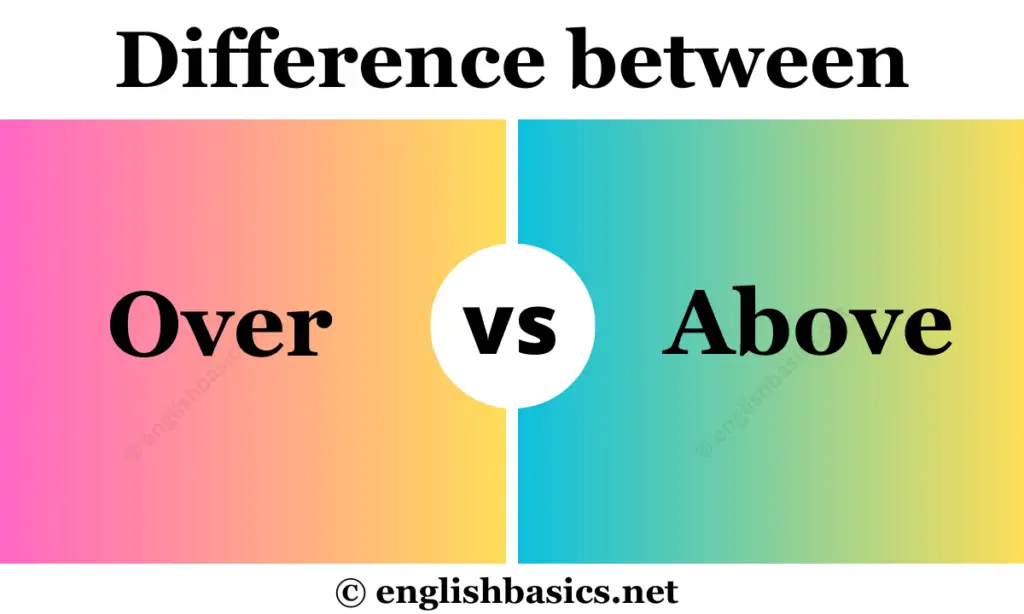Some English words seem like they are completely the same, and we mistakenly use them interchangeably. The words “over” and “above” are among those words.
The words “over” and “above” can be quite similar in terms of meanings and usage. But then again, it is important to note that they are not completely the same.
Both words are used as adjectives, prepositions, and adverbs. As adjectives, they are almost the same. However, they are different in terms of prepositions and adverbs. Let us discuss them in detail.

Over vs Above – Difference
Use of Over
When we use “over” as an adverb, we basically indicate a movement that takes place from one position to another. It can describe both a motion or passage and an object’s or someone’s location. For example;
- She jumped over the car.
- He knocked over the bottle of wine.
Here, “over” indicates a passage or motion of an object.
When we use “over” as a preposition, we indicate something at a place higher than something or someone else. But it is generally used when we express that something is at a higher position, in contact, or touches the other object. For example;
- Her parents put a blanket over her last night.
- They rented the house over the shop.
“Over” also has other uses, such as indicating numbers, more than something, and indicating completion of something.
- I got over 100 requests.
- I got over with my homework.
Use of Above
When we apply the word “above” as an adverb, we indicate only a location or position, not the motion. Usually, it describes a position at a higher place than something. For example;
- We looked at the poster pasted above the table.
- We gazed at the star up above the world.
When used as a preposition, it also indicates something at a place higher than something else, but the objects are not in touch or contact. For example;
- Do you stay at the colony above the city?
- The lamp was placed above the wardrobe.
While “above” can also be used with a number and represent more than something, it is generally more correct to use “over” and not “above.”
Remember the Main Differences between over and above
- “over” and “above” are used as prepositions and adverbs. But the main difference between them is that “over” indicates something at a higher position and is directly perpendicular to something. While “above” is used when something is at a higher position but not directly upwards to something.
- “Over” represents both a trajectory and the location or position of an object. While “above” only indicates the position of an object.
- Another significant difference is that when we use “over,” the object at a higher position is usually in touch with the other object, and there may not be any space between them. But when we use the word “above,” space must be present, and the objects are not in contact or touch.
So we see both “over” and “above” have somewhat similar meanings. But with different forms, they can act differently. It is necessary to learn the difference and understand the concept clearly.